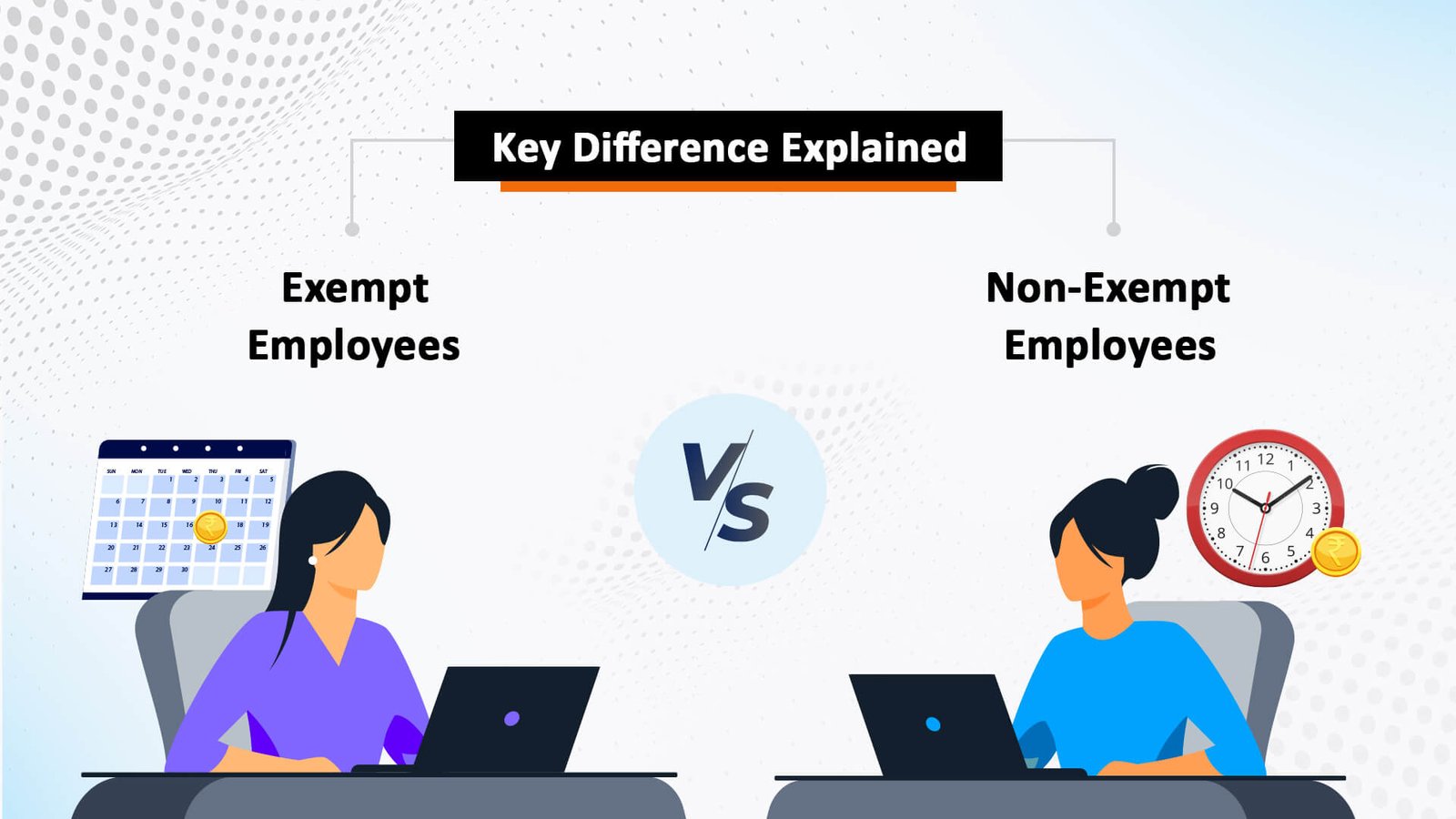New Jersey, also known as the Garden State, is a state that is located in the Mid-Atlantic & Northeastern regions of the United States. It is the fourth smallest state by area but the most populous state. It is one of the original thirteen colonies & it has become the third state to sign the U.S. Constitution.
New Jersey employment laws are a comprehensive set of regulations that govern the relationship between employers and employees within the state. The laws cover various aspects of the employment process, including hiring, working conditions, leaves, and termination.
Hiring managers in New Jersey face the challenge of handling a dense web of employment laws and regulations to ensure workplace compliance. These laws encompass hiring practices, wages and hours, workplace safety, and termination.
It is vital for businesses to understand these state-specific requirements to operate in New Jersey and avoid potential legal issues and penalties.
Primary New Jersey Laws & Practices
Standard Working Hours
In New Jersey, typical working hours are defined as 40 hours per week or eight hours per day in a five-day workweek. However, some exceptions may apply depending on the nature of the job. For example, in some sectors such as retail, 25 hours can be considered full-time.
Working hours are specified in contrast to the contractual agreed employees. The number of hours can fluctuate depending on the type of job requirements. There is no statutory definition of standard working hours for self-employed professionals.
Minimum Wage and Overtime
In New Jersey, minimum wages play an essential role in making sure that workers are paid fairly. The current minimum wage for private-sector workers is $15.49 per hour, and the companies with fewer than six employees.
Overtime laws in New Jersey are governed by both the state’s Department of Labor & workforce Development and the federal Fair Labor Standards Act (FLSA).
Non-exempt employees who work more than 40 hours per week are entitled to overtime pay at 1.5 times their regular pay rate.
Various employees, such as those in executive roles or those performing duties in certification, such as law, might not be eligible for overtime.
Tipped Minimum Wage
From 1st January 2025, the tipped minimum wage is $5.62/hour. Employers can employ this rate only if their salaries and tips add up to at least the minimum wage is $15.49/hour.
A tipped worker is anyone who regularly receives more than $30 in tips per month.
Overtime Laws
Most of the employees who work more than 40 hours per week must be paid 1.5 times their regular rate of pay for additional hours. Some workers are exempt from this overtime requirement, including:
- Executive, administrative, and professional staff.
- Workers tending to livestock.
- Various truck drivers.
Employers can generally require employees to work overtime. However, special rules apply to mandatory overtime for healthcare workers.
Insurance and Benefits
Employers in New Jersey have various obligations regarding insurance and benefits provisions for their employees. These include providing health insurance coverage and contributing to retirement savings plans such as 401k.
Employers are required to provide health insurance options for their full-time employees. These plans should comply with state-specific regulations regarding cost savings. Many employers offer retirement savings plans such as 401(k) contributions.
| Benefits | Employer Contribution |
| Health Insurance | Varies by employer |
| New Jersey mini-COBRA | These state laws fill the gap left by federal COBRA, ensuring employees at smaller companies have access to temporary continuation of employer-sponsored health coverage if they lose their job |
| Retirement plans | Varies by employer |
| Unemployment Insurance | Required, 1.20%-7.00% |
| Worker’s compensation insurance | Required |
| Temporary disability | Employee contribution of 0.009% of up to $161,400 annually |
Rest & Meal Periods
Like many other states, New Jersey Labor laws do not have specific statutes that set out the number of meal or break periods workers must take during work hours. However, like other states, New Jersey adheres to federal regulations outlined by the Fair Labor Standards Act (FLSA), which do not require employers to provide meal or rest breaks; if an employer chooses to do so, however, breaks of less than 20 minutes must be paid.
For meal breaks, generally lasting 30 minutes, the employer does not need to pay the employee if they are free of their work duties. For employees under the age of 18, no rules are being applied.
Anti-Discrimination Laws
Learning about the anti-discrimination laws is vital for HR compliance in New Jersey. Both federal and state laws protect employees from discrimination in the workplace. At the federal level, Title VII of the Civil Rights Act prohibits employment discrimination based on race, color, sex, and national origin.
The Americans with Disabilities Act (ADA) protects individuals, while the Age Discrimination in Employment Act (ADEA) protects individuals with disabilities; however, the Age Discrimination in Employment Act safeguards individuals at the age of 40 and above.
New Jersey Family Leave Act protects employees taking leave to care for a family member from discrimination and retaliation.
Recordkeeping Requirements
Under New Jersey’s Wage and Hour Law, employers should keep the following records for 6 years:
- Employee’s name and address.
- Employee’s birth date.
- Total hours worked each day and week.
- Employee earnings, including regular hourly wage and wage basis.
- For tipped employees, the total tips received each payroll week.
- For tipped employees, daily or weekly reports include:
-
- Employee’s name, address, and social security number
- Calendar day
- Total tips required
- For employees receiving food as wage credit, records showing the following:
-
- Cost details and nature of expenditures are used to determine fair value
Leave Policies
New Jersey state labor laws do not have a state law governing the amount and payment of holiday time; however, employers decide whether to offer paid or unpaid holiday leave, as stipulated in the employment contracts.
For sick leave, however, the New Jersey Earned Sick Leave Law showcases that employers provide one hour of paid sick leave for every 30 hours worked, up to an annual maximum of 40 hours of paid sick leave.
The state follows the federal Family and Medical Leave Act (FMLA), which offers up to 12 weeks of unpaid, job-protected leave per year for specific family and medical reasons.
| Leave Type | Details |
| Sick leave | 40 hours per year |
| Vacation leave | As per the employment contract |
| FMLA | Up to 20 weeks per year |
| NJFLA | Up to 12 weeks in 24 months |
| Jury duty | Unpaid for private employers |
| Bereavement leave | As per the employment contract |
| Military leave | As per federal laws |
| Voting leave | Not required |
| Victims of domestic violence and sexual assault | Unpaid leave up to 20 days per year for any employee who has worked for at least 1,000 hours in the last 12 months at a firm with 25+ employees |
Termination Laws
The termination process in New Jersey is governed by the sole principle of employment at will. Either party may terminate the employment relationship at any time without any prior notice. There are exceptions to this, like in the case of mass dismissals, where the federal Worker Adjustment and Retraining Notification Act requires employers to provide 60 days’ notice to the affected employees.
For severance payment, there is no specific state requirement unless it is provided for in an employment contract. It is a practice in New Jersey to offer one week’s pay for each year of service, and it varies, which is clearly stated in the employee’s contract.
New Jersey Employees Should Use a Free Payroll Stub Generator
If you’re an employee and you’re facing challenges in calculating your taxes or managing your finances effectively, then you can rely on our tool to work in an organized manner.
If you’re using any expensive tool that is proving costly to you, then you can use Stubcreator’s free paystub generator, which provides you with accurate New Jersey payroll calculation information.
You can use the above information about New Jersey labor laws 2025 to update your business.
Curious Minds Also Ask
1- What are the working rights in New Jersey?
Working rights in New Jersey state labor laws include protection against discrimination, the right to fair wages, and the right to take leave for family and medical reasons.
2- What is the 7-minute rule in NJ?
The 7-minute rule in New Jersey labor laws for minors allows employers to round employee time to the nearest quarter hour for payroll purposes. If an employee clocks in or out within 7 minutes before or after a quarter-hour mark, the employer can round the time to the nearest quarter hour.
3- What are the rules for salaried employees in New Jersey?
In New Jersey, a salaried employee is subject to state and federal wage and hour laws, which determine overtime pay and other compensation requirements. There are no specific rules solely for salaried employees. Still, they are exempt from overtime pay if they meet various criteria that are based on the job duties and salary level.
4- What are the rights of employees in Jersey?
Employees in New Jersey have a wide range of legal rights and protections designed to protect them in the workplace. These include the right to a written contract, minimum wage, rest periods, protection against discrimination and unfair dismissal, and the right to request flexible working.
5- What is the 2 second rule in New Jersey?
The 2 second rule in New Jersey is a guideline for maintaining a safe following distance while driving. It showcases that a driver should maintain a minimum following distance of two seconds behind the vehicle in front of them.
6- Is 32 hours full-time in NJ?
With new jersey labor laws 2025 there isn’t a state law defining full-time employment hours. 40 hours per week is considered full-time, but employers might consider 32 hours being full-time, specifically with proposals for a 32-hour workweek gaining traction.
7- What are labor laws in NJ?
New Jersey State Labor Laws cover a wide range of topics, including minimum wages, workplace safety, discrimination, and employee rights. The New Jersey Department of Labor and Workforce Development enforces the laws and resources for both employees and employers.
8- What are the three fundamental rights of work?
The three fundamental rights of work are the right to fair wages, the right to safe working conditions, and the right to organize. These rights make sure that the worker is treated fairly and has the right to advocate for their rights.
9- What is the NJ minimum wage?
The minimum wage in New Jersey labor laws for salaried employees is $15.49 per hour as of 1st January 2025.
10- Can I work 6 hours without a lunch break in NJ?
In New Jersey, adult employees are not legally required to take a lunch break for shifts of 6 hours or less. Employers might choose to offer breaks, but the state doesn’t mandate them for adults.
11- Is New Jersey a final pay state?
No, New Jersey labor laws are not a final pay state where wages must be paid on the last day of employment.
12- What are the maximum working hours in Jersey?
In New Jersey, the maximum working hours are 48 hours per week. There is a fundamental limit, and employers cannot make employees work more than those hours, irrespective of the employment contract.
13- What is the 3 year rule in New Jersey?
Your recovery period is the time that it takes to recover your contributions to the plan, which begins on the date of your first pension payment, and it can last up to three years.
14- What is the 4.2 rule in New Jersey?
The 4.2 rule in New Jersey is referred to as the 4-foot passing law, which states that motorists have to give at least 4 feet of space when a bicyclist is passing or a pedestrian is passing, or even slow down to 25mph if a 4-foot distance is not being maintained as per the guidance of the New Jersey Department of Transportation.
15- Is overtime pay mandatory in NJ?
The law in New Jersey requires the payment of time and a half per hour for actual hours worked in excess of 40 hours, with various exemptions.
16- How many hours can you legally work in a day in NJ?
In New Jersey, no state law restricts the number of hours an adult can work in a day. However, the federal law, the Fair Labor Standards Act (FLSA), the laws has sets a standard for overtime pay, which is time and a half for any hours worked over 40 hours in a week.
17- What are the principles of labor?
The principles of labor are: ensuring social justice, social equity, and social security for workers while also considering the needs of the national economy.
18- What are the three work ethics?
The three work ethics are not a universal process, but it is defined as the standard work ethics, which include integrity, responsibility, and teamwork. These values are cited as vital for a productive work environment, encompassing how an individual is approaching their work, interacting with others, and contributing to the overall success of the organisation.
FAQ's
What is the new minimum wage in New Jersey for 2025?
+
As of January 1, 2025, New Jersey's minimum wage increased to $15.49 per hour for most employees. Tipped workers now earn a minimum of $5.62 per hour, with a maximum tip credit of $9.87.
What does the pay transparency law entail?
+
Effective June 1, 2025, New Jersey employers with 10 or more employees must disclose wage or salary ranges and a general description of benefits in job postings. Additionally, they are required to make reasonable efforts to notify current employees of promotional opportunities.
Are gender-specific dress codes still allowed in New Jersey workplaces?
+
No, New Jersey's Law Against Discrimination mandates that all workplace dress codes must be gender-neutral. Employers must ensure that dress code policies do not discriminate based on gender identity or expression.
What is the New Jersey Data Protection Act?
+
Effective January 15, 2025, the New Jersey Data Protection Act requires businesses to limit personal data collection to what is necessary, implement reasonable security practices, provide privacy notices, and allow consumers to revoke consent for data processing. Violations can result in penalties up to $20,000.





